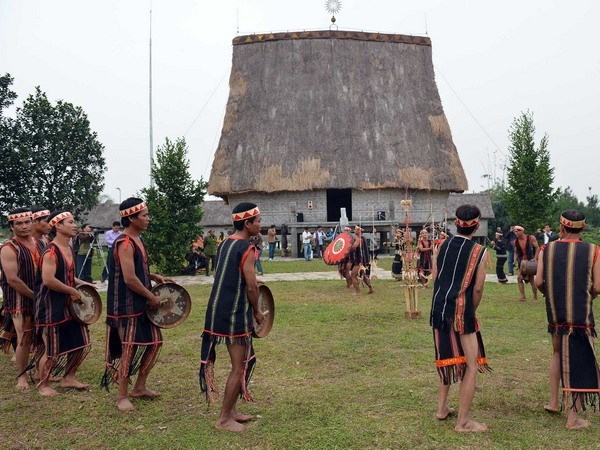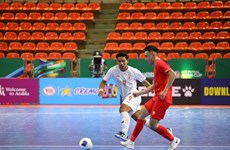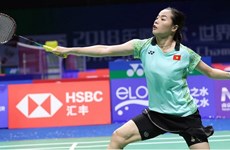Conference discusses ways to preserve cultural values in integration
Ways to preserve cultural legacy values during international integration was discussed at a conference in Ho Chi Minh City on November 30.
 The gong culture in the Central Highlands was recognised as a Masterpiece of the Oral and Intangible Heritage of Humanity by UNESCO in 2005.(Photo: VNA)
The gong culture in the Central Highlands was recognised as a Masterpiece of the Oral and Intangible Heritage of Humanity by UNESCO in 2005.(Photo: VNA)HCM City (VNA) – A conference was held in Ho Chi Minh City on November 30 by the Ho Chi Minh City University of Culture, the Ho Chi Minh City Institute for Development Studies, the Southern Institute of Social Sciences, and the international centre on preservation of cultural values to discuss ways to preserve cultural legacy values during the international integration.
Speaking at the event, held under the theme of “International integration on preservation – chances and challenges for cultural legacy values”, Rector of the culture university, Associate Prof. Dr. Nguyen The Dung held that Vietnam is a country with many cultural legacies, both tangible and intangible.
Cultural legacies are a large field, the study of which has different approaches, which makes the preservation and bringing into full play very complex, he said, adding the international integration on the work still has various problems related to viewpoints and perception.
According to Prof. Dr. Ngo Van Ha from the Danang University, cultural legacies have created a considerable revenue from tourism activities and promoted the image of the Vietnamese country and people to the world. However, the preservation and upgrade of many of these have been done in a “modernizing” way, depriving them of the real and unique values, Ha said, pointing out that the commercialization of many cultural legacies has adversely affected the sustainable development.
Participants also shared the view that many intangible cultural legacies are facing the danger of vanishing as a result of the lack of interest from the young generation. To preserve these legacies, they proposed that managers work out suitable and comprehensive strategies, planning and measures in the direction of both preserving and popularizing them to the world, along with the building of a high-quality personnel who can meet the requirements of integration.-VNA













